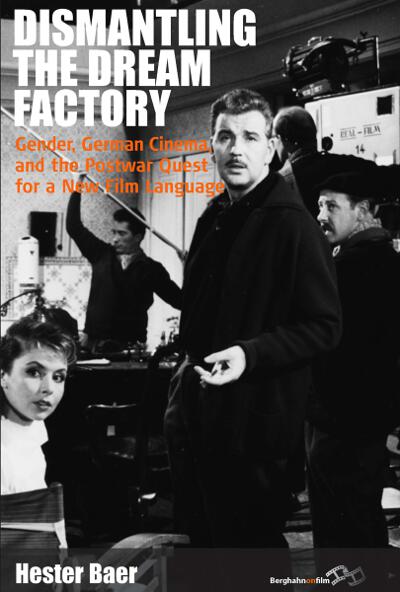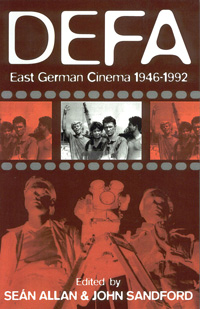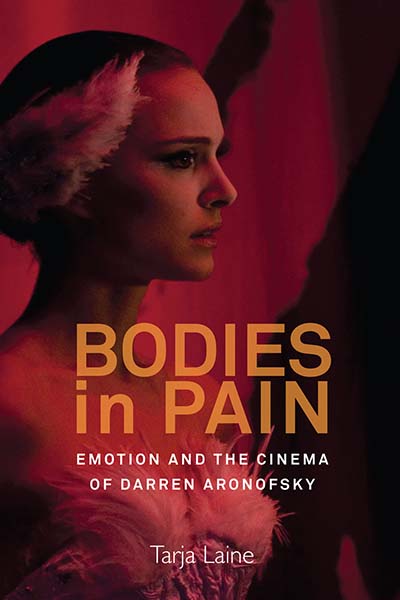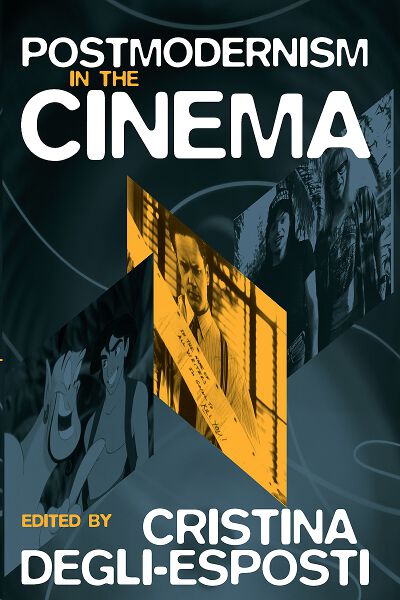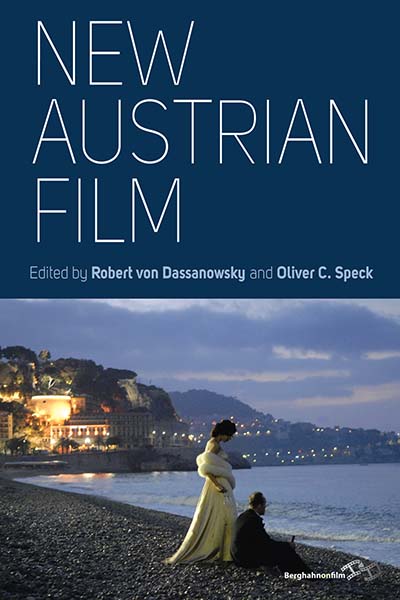
Email Newsletters
Sign up for our email newsletters to get customized updates on new Berghahn publications.
New Austrian Film
Edited by Robert von Dassanowsky and Oliver C. Speck
408 pages, bibliog., index
ISBN 978-1-84545-700-6 $150.00/£115.00 / Hb / Published (April 2011)
ISBN 978-1-78238-510-3 $39.95/£31.95 / Pb / Published (March 2014)
eISBN 978-0-85745-232-0 eBook
Reviews
“In this excellent collection of essays on recent Austrian cinema – the first to attempt to define this body of films as a coherent whole – the editors Robert Dassanowsky and Oliver C. Speck settle upon the term New Austrian Film. They have assembled an impressive team of scholars with diverse backgrounds, interests and perspectives to offer 27 chapters analysing various aspects of Austrian cinema at the turn of the 21st century…[The editors] have done an exemplary editorial job, bringing the contributions together nicely without forcing them into a monotonous similarity of style, approach, or argument. Like the best examples of the films it analyses, New Austrian Filmweaves together a wide variety of narratives and perspectives to challenge its audience to see things differently. The volume is as handsome and professionally presented as we have come to expect from the publisher, Berghahn Books.” · Senses of Cinema
“…highly recommended to scholars, students, and film lovers.” · Monatshefte
“This volume is unreservedly recommended to those who are already familiar with Austrian film to some extent. They will welcome the in-depth treatment and overview of Austrian cinema and its most important representatives.” · Media Studies
“This is a rich volume that will broaden understanding and appreciation of Austrian film and Austrian-trained filmmakers.” · Austrian Studies
“A substantive, coherent, and nuanced volume that brings together first-class authors and presents up-to-date research not only by German-speaking but also by foreign scholars - a reflection of the growing awareness of Austrian film internationally… The scholarly expertise to be found in these rich contributions make reading this volume a pleasant experience.” · RAY Magazine
“Almost all of the essays are well written and argued; they are well worth the attention of anyone interested in contemporary German-language cinema or in the contemporary German-speaking world. They provide a useful introduction to a national cinema that should be of interest to cinephiles everywhere.” ·Journal of Austrian Studies
“This book opens by referencing a 2006 New York Timesarticle that characterized Austria as the ‘world capital of feel-bad cinema,’ and then sets out to complicate this aesthetic, an objective which the diverse and engaging contributions more than accomplish… Beyond the pessimistic storylines, it seems, there is another level on which these films function, a productive, didactic and perhaps even optimistic level that is tested and chronicled in this unique and valuable collection of current perspectives.” · Austrian Studies Newsletter
“New Austrian Film introduces a generation of Austrian and Austrian-trained Central European filmmakers to world cinema scholars and cinephiles, opening a vista on a resolutely political and multicultural cinema… This volume is well-balanced and conceived to provide historical, theoretical, and aesthetic frameworks that will draw both the professional and the enthusiast into a contemporary cinema too long overlooked as a distinctive voice on the international stage.” · Katherine Arens, University of Texas at Austin
“The essays in this volume provide both historical context and critical analysis for the politically and aesthetically significant filmmaking now being done in Austria. This is an exemplary collection, comprehensive in scope and rich in fascinating detail, that will help bring closer attention to a remarkable national cinema.” · Chris Fujiwara, editor of the International Federation of Film Critics journal, Undercurrents
Description
Out of a film culture originally starved of funds have emerged rich and eclectic works by film-makers that are now achieving the international recognition that they deserve: Barbara Albert, Michael Haneke, Ulrich Seidl, and Stefan Ruzowitzky, to give four examples. This comprehensive critical anthology, by leading scholars of Austrian film, is intended to introduce and make accessible this much under-represented phenomenon. Although the book covers the full development of the Austrian new wave it focuses on the period that has brought it global attention: 1998 to the present. New Austrian Film is the only book currently available on this topic and will be an essential reference work for academics, students and filmmakers, interested in modern Austrian film.
Robert von Dassanowsky is Professor of German and Film Studies at the University of Colorado, Colorado Springs and also works as an independent film producer. He is the author of Austrian Cinema: A History (2005), the first English language survey of that nation's film art. Other books include The Nameable and the Unnameable: Hugo von Hofmannsthal’s "Der Schwierige" Revisited (co-ed., 2011), Quentin Tarantino’s Inglourious Basterds: A Manipulation of Metafilm (ed., 2012), World Film Locations: Vienna (ed., 2012), and Screening Transcendence: Film Under Austrofascism and the Hollywood Hope 1933–38 (2014).
Oliver C. Speck is Associate Professor of Film Studies and Graduate Program Director of the M.I.S. Concentration in Cinema and Language at Virginia Commonwealth University, School of World Studies. His scholarly writing focuses on narrative strategies and the representation of memory and history in European cinema. He is the author of Funny Frames: The Filmic Concepts of Michael Haneke (2010), and editor of Quentin Tarantino's Django Unchained: The Continuation of Metacinema (2014).

